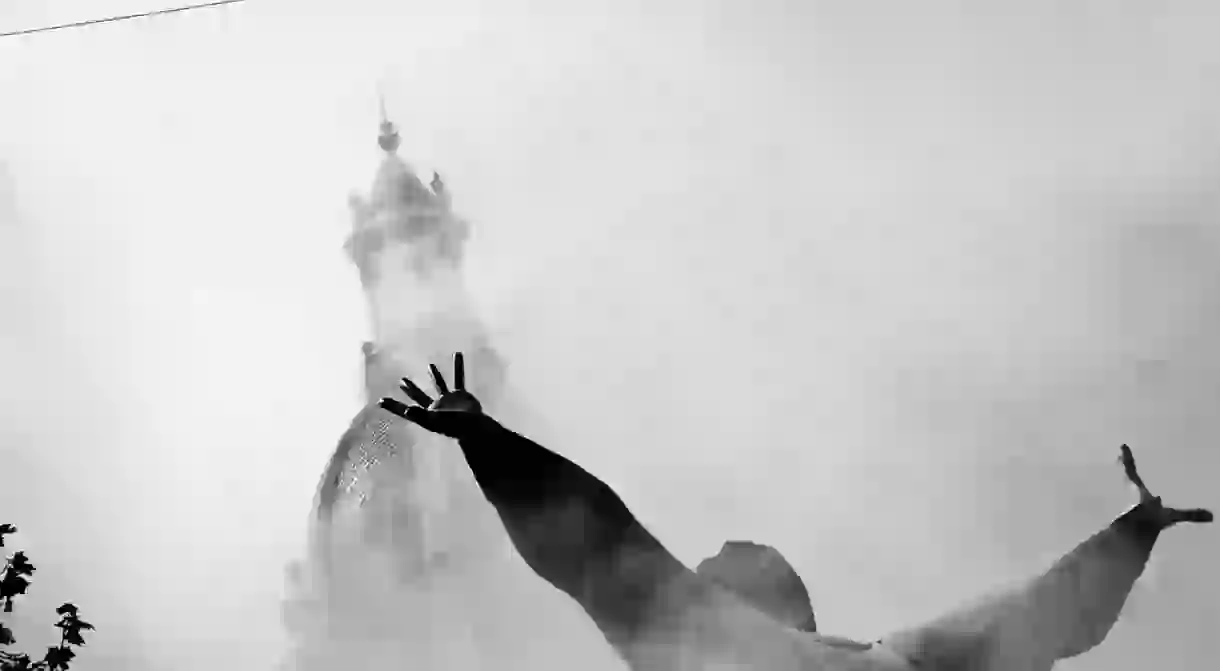The Story Behind Valencia's 'Mascletà' Fireworks

Loud, unexpected explosions in the middle of the day often give visitors to Valencia a fright. After all, who’s expecting a firework display at 2pm? After the initial shock, you might wonder what the point is of letting off all those fireworks in broad daylight anyway. This is the mascletà, one of the Valencia region’s most-loved traditions.
The mascletà is best described as ‘noise fireworks’, where the most important factors are the rhythm of the explosions, the amount of noise made and the amount of smoke created. Light and colour don’t really come into it; barely visible anyway in the intense sunshine.
The mascletà is a major part of the city’s huge Las Fallas festival, shaking the city centre to its foundations for five minutes every day for weeks before the festival even begins. In fact, if you visit Valencia in mid-March you might think you’ve accidentally landed in a war zone. The air is thick with the smell of gunpowder and the sound of firecrackers going off almost constantly, with people letting off their own bangers in the streets from morning ’til night.
The Las Fallas mascletàs are just a part of it, and they get louder and more intense as the festival nears, with the biggest and best on March 19 – the final day of the festivities.
But mascletàs aren’t just for Las Fallas. They’re also a part of normal life in Valencia all year round. You might hear daytime fireworks for public holidays, weddings, street parties and seemingly just for random Tuesdays or no reason at all. So common are the loud bangs that Valencians greet the most earth-shattering of explosions with barely a shrug.
The Las Fallas mascletàs also have a special, festive atmosphere as crowds of locals arrive at the central Plaza Ayuntamiento up to an hour and a half before the show to grab a good spot – which means getting as near as possible to the explosive action. There are now safety barriers but you can still get very close to the colourful bags of gunpowder hanging neatly in line.

Though busy, the atmosphere is relaxed and respectful. Groups of all ages sit in circles chatting, eating and playing cards in the spring sunshine as they wait patiently for the show to start. Excitement builds as warning fireworks are shot into the sky at five-minute intervals and the balconies above start to fill with people.
The display starts off strong but at a sombre pace, building in intensity with a carefully-planned rhythm, until all hell breaks loose at the crescendo and it becomes so overwhelmingly loud that you wonder if something has gone wrong. Nope. It really is supposed to shake you to your core – and you really are supposed to be partially deaf for a few hours afterwards.
If you see people standing there with their mouths open, it may or may not be because they’re in shock. Valencians say you should open your mouth during the mascletà and you should NOT cover your ears, because ‘all those sound waves need somewhere to go’. Sounds legit.
The sound and rhythm is so important that, during the daily mascletàs leading up to Las Fallas, the city runs competitions for people to ‘compose’ their very own mascletà online, making up their chosen rhythm of explosions from a variety sounds simulating the whistles and bangs of favourite fireworks (and yes, people here really do know all the different types and what sounds they make).
The rhythm gradually builds over about five minutes to that ear-splitting, ground-shaking crescendo. Oh, and the winning composer gets to stand with the pyrotechnician (these guys are basically local heroes) as they send up to half a metric ton of gunpowder up in smoke.

Nobody seems to know exactly when it started, but the mascletà used to only happen on March 19, the final day of Las Fallas. It was so popular that it grew and grew until the city ended up with the current total of 19 mascletas from March 1-19 every year, before and during Las Fallas.
One thing’s for sure, if you see a huge cloud of smoke anywhere in Valencia, it’s far more likely to be a party than an emergency. So don’t panic. This is a city that loves to party for any reason at all and the much-loved mascletàs are a big part of that, at any time of year.













